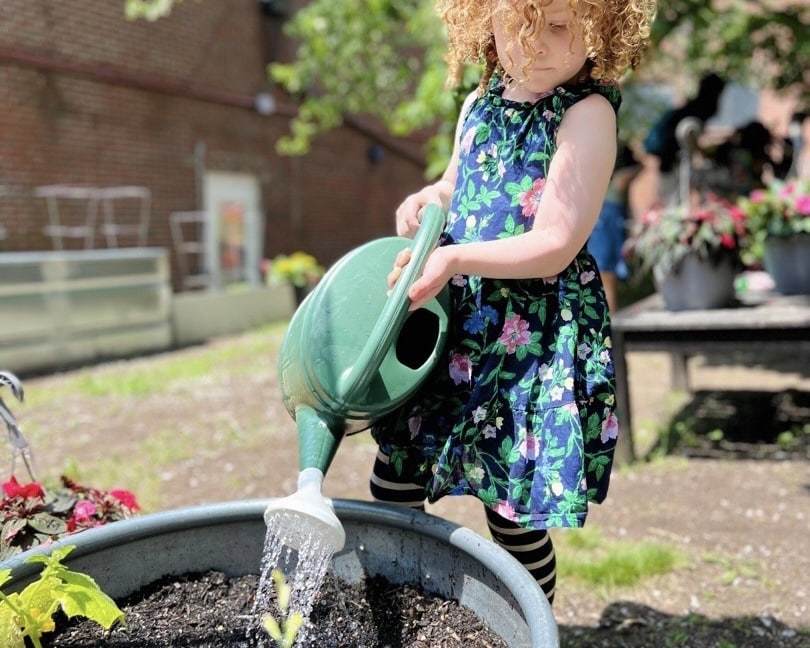“We do what we can with the knowledge we have. No form of parenting is the “right” one.”
What You’ll Learn
- Is there a “right” way to parent?
- What are parenting styles, and why are they important to consider?
- What is a thriving parent, and how can I be one?
I was going to start this post by alluding to the fact that there was a “right” way to parent and then telling you there isn’t one. Instead, I’ve decided to tell you right off the bat that being a parent is complicated – something you already knew – and I am not going to waste your time by tricking you into thinking there is one form of parenting that beats all the rest.
Here’s what I will tell you: Parenting, unfortunately, is not a science. There are too many variables (e.g. parental upbringing, cultural differences, the needs of the child, etc.) to argue that there is one way to parent a child. That said, I do believe there are certain parental qualities and effective parenting strategies that can benefit your child and make this experience a little easier – I say “a little” because parenting is complex and there will always be challenges to overcome.
Parenting Styles
Let’s start by identifying the four common parenting styles, according to psychologist Diana Baumrind:
- Authoritative: Parents are demanding, but also warm and accepting
- Authoritarian: Parents are demanding, as well as cold and unaccepting
- Permissive: Parents are warm and accepting, but also undemanding
- Neglectful: Parents are cold and unaccepting, as well as neglectful
While these common parenting styles are useful to consider, and research has demonstrated the effectiveness of authoritative parenting (Kritzas & Grobler, 2009), many parents put themselves under extreme pressure to follow this authoritative approach. As I mentioned before, parenting is not a science, and no parent can be (or should be) expected to follow one parenting style all the time. Even Dr. Becky, a renowned parenting expert, argues that good parents are not perfect.
Ideally, your parenting style should encompass strategies and attitudes you want to employ that coincide with your child’s personality, strengths, and areas of growth. Realistically, however, your approach to parenting will be imperfect, and that is okay. Do your best and trust yourself to be the parent your child needs you to be.
Being a Thriving Parent
To thrive refers to the ability to prosper or to flourish over time, usually within the appropriate context. Instead of pressuring yourself to become a perfect parent, I encourage you to be a thriving parent – a person who accepts parenting as an ongoing process and allows themselves the time to learn and grow as a parent.
Here are ways to continue to thrive as a parent:
| Allow yourself to make mistakes | You are human and you are trying your best. |
| Practice self-reflection | Take the time to figure out if what you are doing is working. |
| Take action and make a change | Don’t be afraid to change your parenting approach, and recognize that flexibility is key. |
| Seek guidance and partnership | Did you know research has found that young children benefit from being raised by a group of people versus one or two? |
| Act and live your values | Your child will learn by watching how you live. |
| Build a relationship in which your child feels understood, accepted, and loved | Secure attachments serve the functions of safety, emotional security, and learning. |
| Use effective parenting strategies that suit you and your child | E.g. consistency, love, support, setting realistic expectations, mutual respect, active listening, and socialization |
Empowering Takeaways
- The “right” way to parent is whatever “right” means for you and your child
- One challenging moment or mistake does not define you as a parent
- Thriving parents are not perfect; they accept imperfection and take the time and space they need to grow
Be vibrant and keep thriving!
This article was last reviewed or updated on September 15, 2023.
References
Doucleff, M. (2021). Hun, gather, parent: What ancient cultures can teach us about the lost art of raising happy, helpful little humans. Avid Reader Press.
Masten, A. (2014). Ordinary magic: Resilience in development. Guildford Publications.
Morelli, G., Bard, K., Chaudhary, N., Gottlieb, A., Keller, H., Murray, M., Quinn, N., Rosabal-Coto, M., Scheidecker, G., Takada, A., & Vicedo, M. (2018). Bringing the real world into developmental science: A commentary on Weber, Fernald, and Diop (2017). Child Development, 89(6), 594-603.
Stone, E., & Sturtz, L. (2022). The power of reflective practice in early childhood education – Part I: Helping caregivers tap into their best selves. Housman Institute. https://www.housmaninstitute.com/blog/the-power-of-reflective-practice-in-early-childhood-education-helping-caregivers-tap-into-their-best-selves
U.S. Department of Education. (2003). Being an effective parent: Helping your child through early adolescence. https://www2.ed.gov/parents/academic/help/adolescence/part5.html
World Humanitarian Movement. (2023). Exploring parenting styles: Finding what works for your children. https://wohum.org/exploring-parenting-styles-finding-what-works-for-your-children/?gclid=CjwKCAjw3oqoBhAjEiwA_UaLtlbh1jYob6njqNrxz4C-tphmGiN0OJpyDpcM6L8WRmhbiv8tR3mFxhoCmxoQAvD_BwE
Kritzas, N., & Grobler, A. (2009). The relationship between perceived parenting styles and resilience during adolescence. Journal of Child and Adolescent Mental Health, 17(1). https://doi.org/10.2989/17280580509486586







